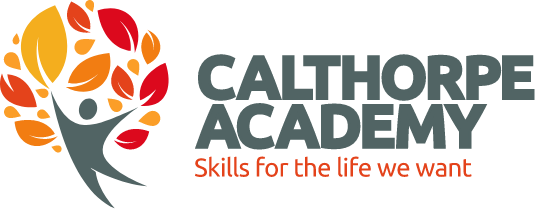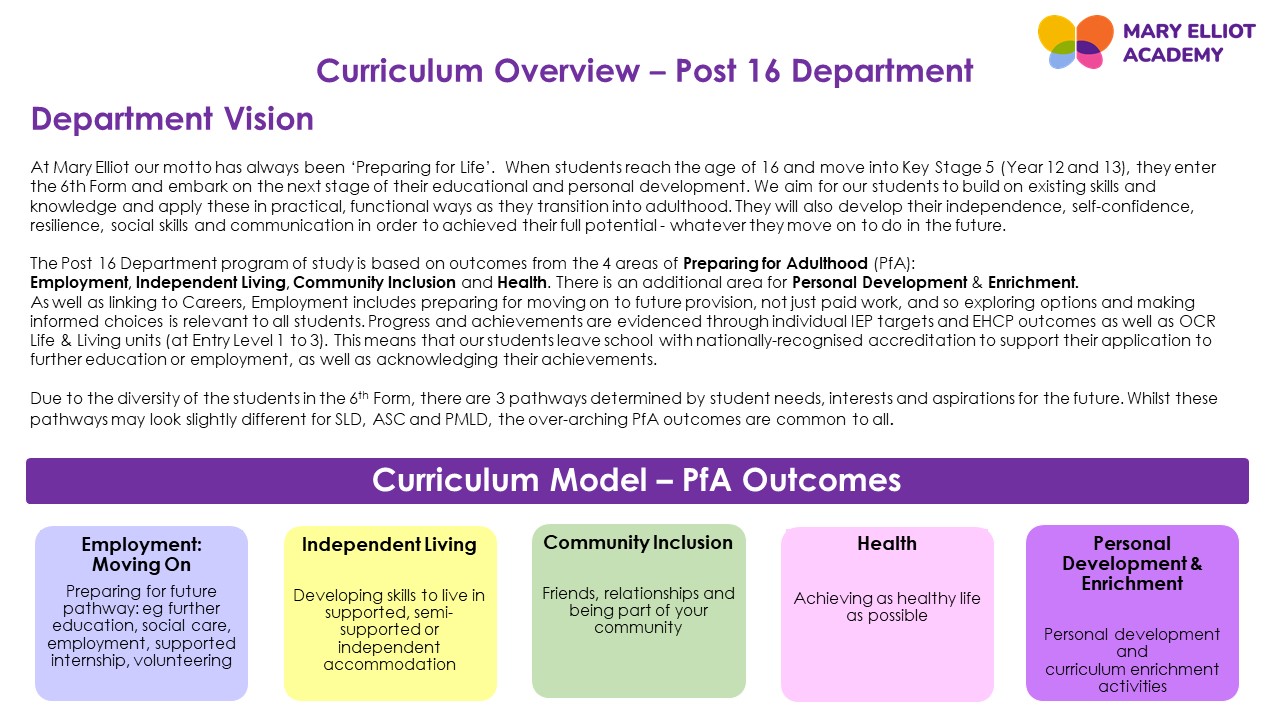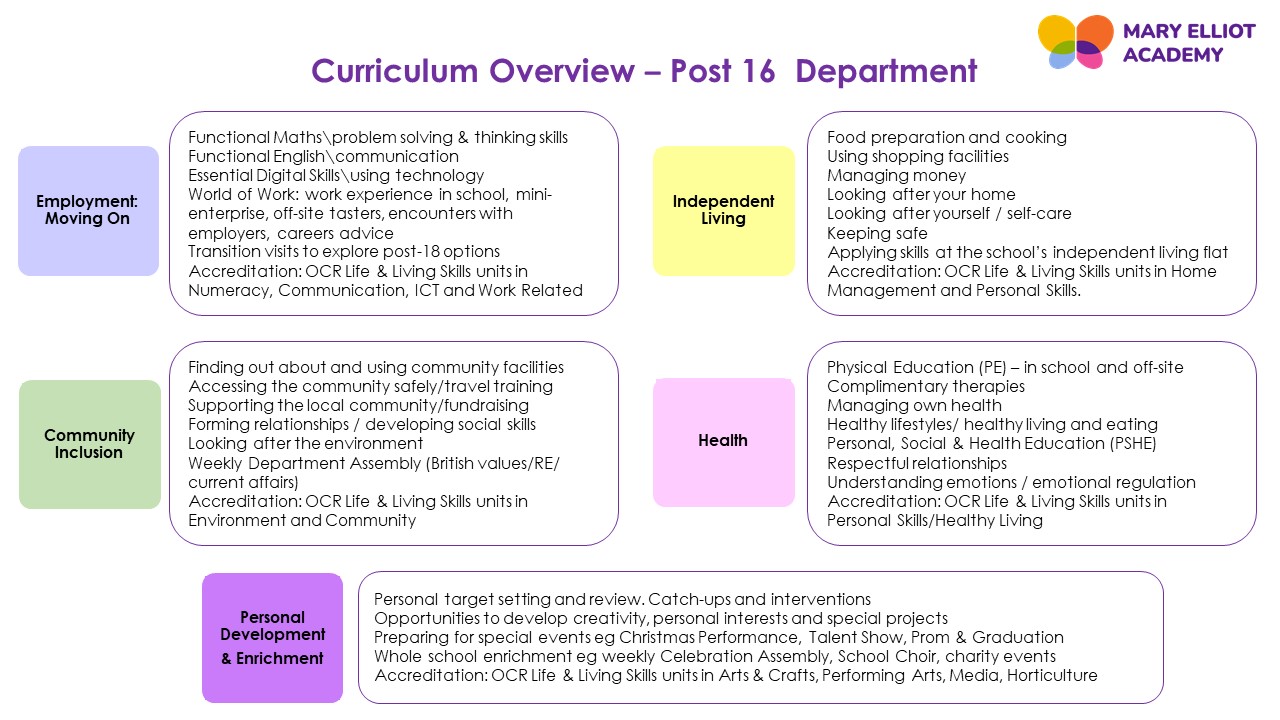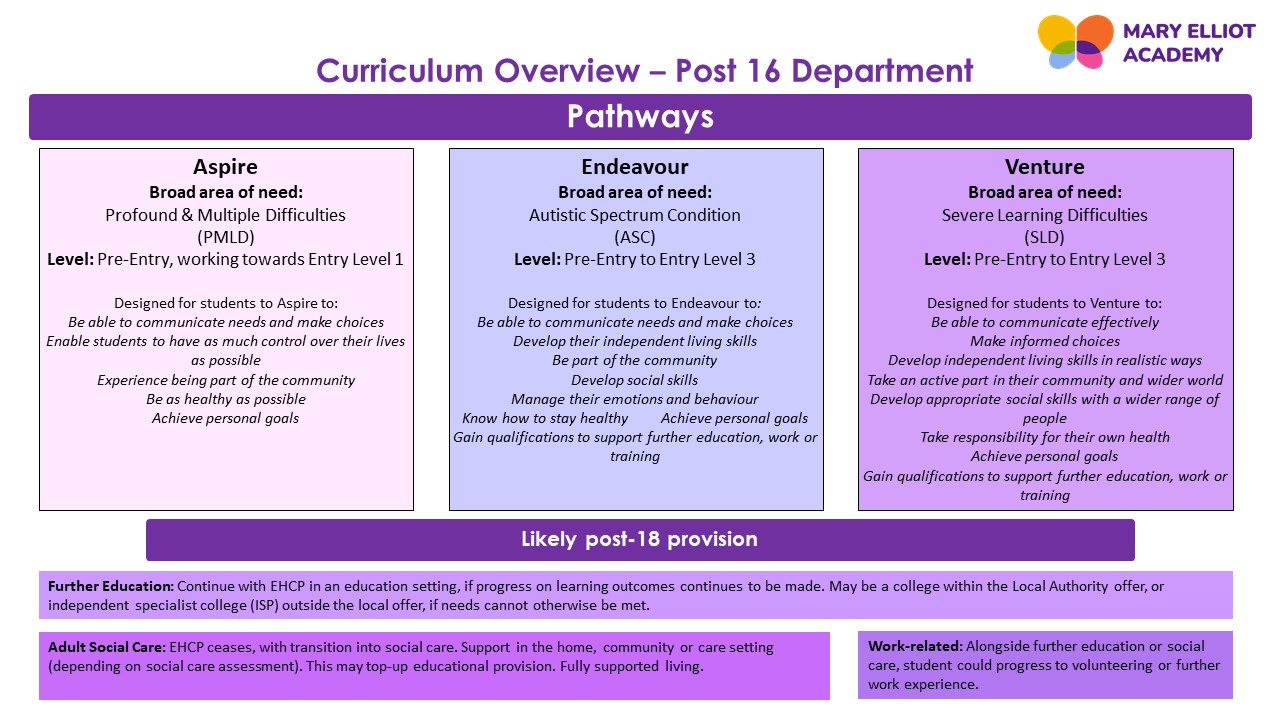Post 16 Curriculum
The Department for Education (DfE) implemented study programmes in response to the findings of the Wolf Report (March 2011) which had identified a number of issues with the existing approach to providing post-16 vocational education. Student’s programme must therefore be consistent with a set of principles published by the DfE. These principles state that a study programme must:
- Provide progression to a level higher than that of their prior attainment. For our students, progression might be lateral, representing a broadening, generalising or consolidation of skills. This is why we offer a good range of units, linked to PfA areas, allowing a ‘spikey profile’ of achievement from Entry 1 up to Entry 3.
- Include qualification(s) to stretch students and link to suitable progression opportunities in training, employment or higher levels of education. For our students, moving on to these may be an aspirational goal, but we also value personal goals such as developing more independent living skills or more effective communication. Development of skills in English and maths are also included in the study programme, as relevant to individual needs and planned progression.
- Allow for meaningful work experience which develops employability skills, including opportunities for in school work experience or enterprise programmes, when these are of benefit to the learner and their future aspirations.
- Include other activities unrelated to qualifications that develop the skills, attitudes and confidence that support progression. This is why our study programme does not consist of accreditation alone, but provides opportunities for personal development and enrichment.
OCR Life and Living Skills Accreditation
Students work on their OCR units throughout their 2 years in Key Stage 5. Evidence of achievement against OCR’s assessment criteria is gathered and then submitted to OCR for external moderation. Credits are gained for each unit successfully completed and, depending on the number of credits, an Award, Certificate or Diploma is achieved. Individual units can be completed at Entry 1, 2 or 3, allowing for a personalised programme that accounts for student’s strengths in any particular skill area. Furthermore, units at the lower Entry 1 are assessed against a 10-stage ‘Achievement Continuum’ from 1.Encounter up to 10. Application and so the qualification is accessible to all our learners and small steps of progress within the continuum can be shown..
There are over 140 units to choose from that cover skill areas that fit with our ethos of preparing for life. These are:
- Communication
- Numeracy
- ICT
- Home Management
- Community & Environment
- World of Work
- Personal Skills
- Horticulture
- Arts & Crafts
- Performing Arts
- Media
This flexibility enables us to create more personalised and progression-focused study programme for our students, with the intent to achieve sufficient credits to achieve a Diploma by the time they finish Year 13. The impact of this is that students leave us with a vocational qualification which not only recognises their achievements, but also provides evidence to support their applications to further education or employment.
Further information from the OCR website:













